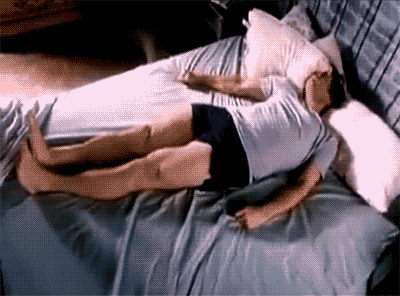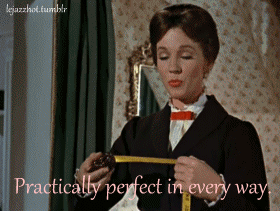Let’s talk about anxiety. High functioning anxiety.
Why?
- Women are more likely to experience anxiety.
- People from North America and Western Europe are more likely to be affected by anxiety.
- Anxiety affects 18.1% of adults in the U.S.
- Estimates of 30% of people don’t seek help
- Around 10% of those with anxiety…seek effective help.
As a teacher and traveler, I find myself battling with anxiety. No. I’m not talking about stress and I smack a label on it with anxiety. I don’t go around telling every individual that I struggle with anxiety. Sure, I talk about awareness with friends and family, but I don’t use my anxiety as an excuse at work or even at home.
There are so many types of anxiety disorders too: general anxiety, panic disorder, social anxiety, etc.
I have High Functioning Anxiety. So what’s it like? Truly like? What are triggers?
- Restlessness–The brain does NOT shut off. This is a common symptom for people with anxiety, and women. Why women? Well, studies show that a woman’s brain chemistry is different and hormone fluctuations are also linked to anxiety. Women are more prone to stress, react differently to their life events, and think deeply about stressors. Bingo. A person with high functioning anxiety can look calm as a cucumber on the surface, but inside their brain is going a million miles a minute.
- Time–I have found that people with anxiety focus on time. They need to be on time. They watch that clock. “I’m late!” is a common phrase…even though they arrive 15 minutes early to everything. Time can be an anxiety trigger. Being with a group of people that are running late? Anxiety triggered. Someone else running late which affects a meeting or schedule? Anxiety triggered.

- Personality Type–Although anxiety hits all types of personalities, I do find it interesting that type A individuals are more likely to be affected by stress-related illnesses. Type A people are twice as likely to develop coronary heart disease. Type A is achievement oriented, high-strung, intense, high individual expectations, and put high demands on themselves. Can you see this as a recipe for trouble? However, many personality types have traits and potentials for anxiety. Read more here: https://www.healthyplace.com/blogs/anxiety-schmanxiety/2014/10/anxiety-and-personality-type/
- Sleep–Those with anxiety struggle with sleep. Shocker? No. Yet, you may hear that these people sleep waaaay more than the average person. Here’s the thing–it’s not solid sleep. It’s sleep that is riddled with dreams, waking up, and even panic attacks. That doesn’t sound like a restful sleep to me. So remember that your anxious friend may not be sleeping through the night and is realistically getting less sleep than you due to constantly waking up or laying in bed without actually falling asleep.

- Silent–High functioning anxiety can be hard to detect. Why? We look just fine and dandy on the outside. Inside is where we are having an inner monologue that is freaking out. I have quite a few close friends, a large family, a husband, and positive relationships with my co-workers. Who can tell when my anxiety hits? My father and sometimes my husband. It’s not many people. My heart races. I zone out. I’m caught in my own thoughts. I need to be alone. I feel fatigued, even dizzy. My brain races. Chest tightens. These anxiety attacks last a few minutes to over an hour. They feel never ending. Yet, these symptoms are silent to those around me. This is the hardest type of anxiety to detect.
- Perfectionist–Ah, perfectionism. Maybe it’s my inner teacher, but this need and want has never left. Those who struggle with perfectionism find themselves with anxiety at times. Why? That stack of papers over there needs to graded or at least filed properly. Files are color coded. Everything is labeled with the help of a label maker and in alphabetical order. There is a specific place for everything. Unrealistic perfectionism can increase anxiety and, interestingly, they enhance one another. Perfectionism leads to ideas of not being good enough or fearing mistakes. All or nothing thinking increases the anxiety, and most perfectionists see things as absolutes. Perfectionism is a major trigger (and even part of) anxiety. https://www.healthyplace.com/blogs/anxiety-schmanxiety/2014/05/the-link-between-perfectionism-and-anxiety/.

So what do I do? I plan to write another blog soon to give some tips on how to handle anxiety. No, I’m not a psychiatrist or doctor, but I do struggle with anxiety. Guess what? I also received help by a trained professional. Getting help was one of the hardest and best things I ever did for my mental health. Did the anxiety disappear? Absolutely not! Was I able to handle it better? Yes.
Remember my teacher and traveling friends–take care of YOU. Your mental health is just as important as your physical health.
“The thing about an anxiety disorder is that you know it is stupid. You know with all your heart that it wasn’t a big deal and that it should roll off of you. But that is where the disorder kicks in. Suddenly the small things is very big and it keeps growing in your head, flooding your chest, and trying to escape from under your skin. You know with all of your heart that you’re being ridiculous and you hate every minute of it.”
xoxo
Your Wander
